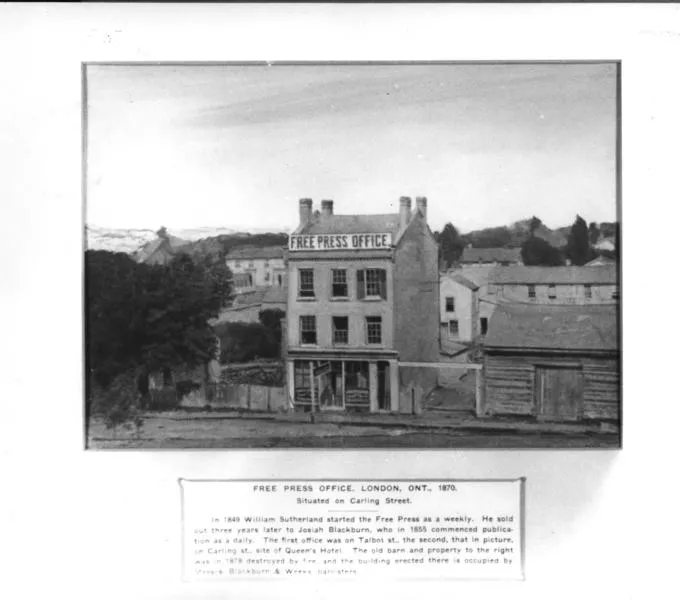Date of Plaque Unveiling: 2 October 1990
Location: 122 Carling Street, London, ON (present site of the Marienbad Restaurant)
History
122 Carling Street was one of many commercial structures built in the 1850s in London.
The coming of the railway had turned the village into a city almost overnight. A major land speculation boom followed, with some predicting the city’s population would reach one million by 1900. The financial panic of 1857 destroyed these hopes, and three-quarters of the city’s businesses went bankrupt over the next three years.
Of the several newspapers published in London in 1855, only the London Free Press had survived by 1859.
The American Civil War had a major impact on the city and the newspaper. Spies, foreign journalists, and Pinkerton’s agents moved in and out of the city’s hotels. British soldiers were ever present, as the local garrison had been reinforced in case of possible invasion by Union troops seeking retribution for perceived British support of the Confederacy. Several Free Press reporters were dispatched to cover the conflict and later reported on the battles of the Fenian Raids. Free Press reporter Malcolm Bremner slept in the field before the Battle of Ridgeway in 1866, to be sure not to miss the action.
By 1871, the Free Press moved to Richmond Street and 122 Carling Street became the Queen’s Hotel, later one of London’s leading hostelries, with 28 neatly furnished guest rooms and an elegant dining room.
In 1921, this building housed The Farmer’s Advocate, an agricultural journal founded by William Weld in 1866. It was the country’s longest published agricultural paper, circulating throughout Canada and the U. S. for 99 years. One of its editors, Watson Porter, also became the broadcast chairman for the influential radio program, National Farm Radio Forum.
In 1974, the Marienbad Restaurant opened in the building.

